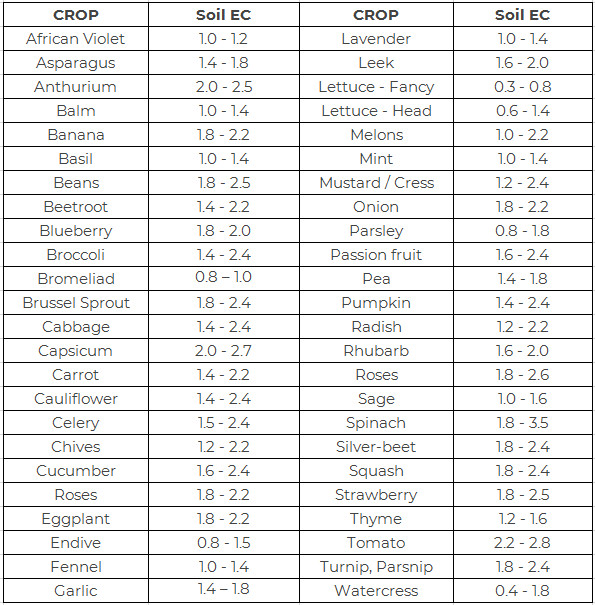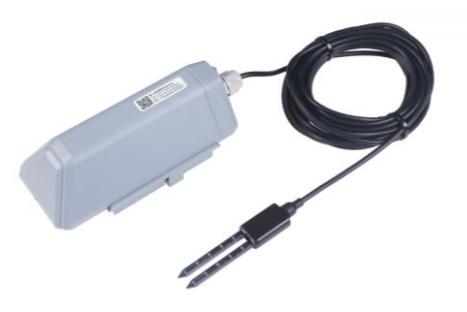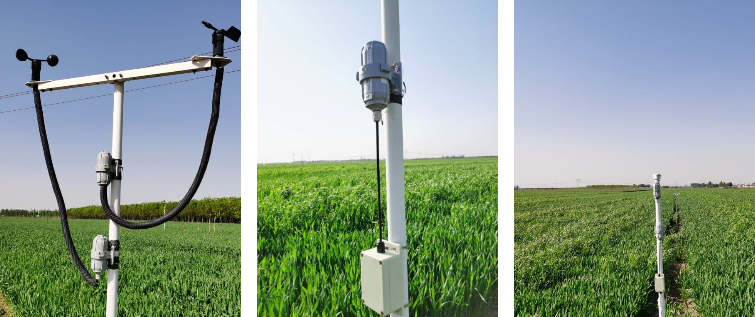Soil Electrical Conductivity(EC): What’s It, Why Important, How to Measure & More
Soil electrical conductivity (EC) is a metric of the salt content in the soil, it is an important indicator of soil health. It will affect crop yield and quality, plant nutrient availability, and the activity of soil microbes that is related to key soil processes, including emissions of greenhouse gases such as nitrogen oxides, methane, and carbon dioxide. Through this article, you will learn:
- What is the electrical conductivity of soil?
- The importance of electrical conductivity and what is a good EC in soil
- What factors affect the electrical conductivity of the soil
- How to measure EC in soil
What’s Soil Electrical Conductivity (EC)
Soil EC refers to the electrical conductivity of a solution within a unit distance, and it represents the content of soluble salts in the matrix, also known as salinity or ion concentration. Soil conductivity is an index to measure soil water-soluble salt, and soil water-soluble salt is an important indicator of mineral nutrients in the topsoil that can be quickly utilized by plants, and is a factor to determine whether salt ions in soil limit crop growth.
The size of the EC value is closely related to the concentration of soluble salt ions in the solution. The soluble salt ions mainly come from irrigation water and fertilizer solutions. Within a certain range, the conductivity increases with the concentration of the liquid and decreases with the decrease of the concentration, often expressed in millisieverts/centimeter (mS/cm) or dS/m
The importance of electrical conductivity and what is a good EC in soil
Soil EC that is too high or too low hinders the growth of crops. If the soluble salt content (EC value) in the substrate is too high, reverse osmosis pressure may be formed, which will replace the water in the root system and make the root tip brown or dry. Excessive EC value also increases the probability of root rot caused by cotton rot fungus. If the EC value is too low, it indicates that the effective nutrients are insufficient.
Different plants have different suitable soil EC values according to the characteristics of fertilizer requirements and different growth stages. The optimal EC value for plant growth is usually between 0.8-1.8, and should not exceed 2.5.
The following table is the adaptation range of EC value of some common crops for reference

What factors affect the electrical conductivity of the soil
Soil EC is affected by planting, irrigation, land use, fertilizer, manure, and compound fertilizer application. Intrinsic factors that affect EC include unalterable soil minerals, climate, and soil texture.
In current agricultural production, excessive fertilization is a common phenomenon. Soil salinity seriously affects the normal growth of crops, so we must pay attention to the index of soil EC value. Measuring the EC value can facilitate the farmers to carry out scientific and reasonable regulation of water and fertilizer, which is conducive to the healthy growth of crops and achieves increased production and income.
How to measure EC in soil
There are several common methods for testing soil EC value:
Handheld EC meter: A handheld EC meter is a simple and easy-to-use tool that measures the EC value of soil extract. The meter is equipped with a probe that is inserted into the soil extract, and the reading is displayed on a digital screen.
Laboratory analysis: Soil samples can be sent to a laboratory for analysis, where the EC value is measured using a conductivity meter. This method provides accurate results, but it can be time-consuming and expensive.
Soluble salt test strips: Soluble salt test strips are paper strips that are dipped into a soil extract. The color of the strip changes based on the EC value of the soil extract, and the result can be compared to a color chart to determine the EC value.
Electrical resistivity imaging (ERI): ERI is a geophysical method that uses electrodes to measure the electrical resistivity of soil. By measuring the resistivity, the EC value of the soil can be estimated.
Soil moisture sensor: Soil moisture sensors are commonly used in smart agriculture to help farmers in real-time and remotely monitor soil EC and ensure optimal plant growth.
Except for EC, temperature, and humidity are also very important indicators to measure soil health. SenseCAP S2105 is a 3-in-one high-accuracy LoRaWAN sensor that is able to monitor soil EC (The measuring range is from 0 to 23 dS/m), moisture, and temperature in the soil at the same time.

SenseCAP S2105 has been widely used in agriculture irrigation, greenhouse and garden planting, turf management, drought monitoring, etc. because of the following advantages:
√ Integrate soil temperature, soil moisture, and soil conductivity, to meet the needs of soil health monitoring in most scenarios.
√ High accuracy, industrial grade, IP66 rating, robustness, and stability, can be deployed in any harsh indoor or outdoor environment.
√ Easy to deploy, scan the QR code on the device and configure in just a few clicks.
√ Low maintenance cost: a built-in battery that supports Max 10 years of usage, bluetooth for remote data acquisition, and device management.
√ Wireless connectivity, supported by worldwide LoRaWAN networks (Helium, TTN, etc.), ultra-wide-transmission range of 2km in urban scenes and 10km in line of sight scenes.
The video below will show you how easy to measure the Soil EC with SenseCAP S2105
Here’s the newest video of the SenseCAP S210x Series unboxing and shows how to deploy in your area
Seeed SenseCAP has extensive experience in smart agricultural solutions for many years and has helped lots of customers to promote the refinement of agricultural production and improve the quality and efficiency of economic development by building IoT monitoring solutions. Hebei outdoor triticale farm and Beihai demonstration park of sweet melons are two typical success stories benefiting from SenseCAP soil EC moisture and temperature sensor.

If you’re looking for a soil EC sensor for your precision agriculture operation, then look no further than SenseCAP S2105!